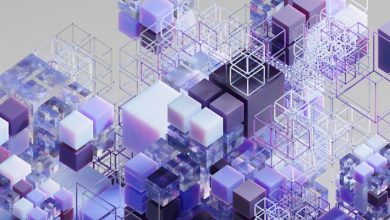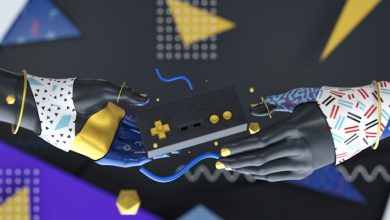The Role of AI in Enhancing Blockchain Technology

- Understanding the intersection of AI and blockchain technology
- Exploring the potential of AI to revolutionize blockchain
- How AI is reshaping the future of blockchain applications
- The synergy between AI and blockchain for enhanced security
- Challenges and opportunities in integrating AI with blockchain
- Case studies showcasing the impact of AI on blockchain technology
Understanding the intersection of AI and blockchain technology
AI and blockchain technology are two cutting-edge innovations that are revolutionizing various industries. The intersection of these two technologies has the potential to create even more impactful solutions. AI, with its ability to analyze vast amounts of data and make predictions, can enhance the security and efficiency of blockchain networks.
One way in which AI can improve blockchain technology is through the use of smart contracts. Smart contracts are self-executing contracts with the terms of the agreement directly written into code. By integrating AI algorithms into smart contracts, it is possible to automate decision-making processes, reducing the need for human intervention and increasing the speed and accuracy of transactions.
Another area where AI and blockchain intersect is in data management. Blockchain technology provides a secure and transparent way to store data, while AI can be used to analyze this data and extract valuable insights. By combining these two technologies, organizations can gain a deeper understanding of their operations and make more informed decisions.
Furthermore, AI can enhance the scalability of blockchain networks by optimizing resource allocation and improving consensus mechanisms. This can help address one of the key challenges facing blockchain technology – the scalability issue. By leveraging AI algorithms, blockchain networks can achieve higher transaction throughput and better performance.
In conclusion, the intersection of AI and blockchain technology holds great promise for the future. By harnessing the power of AI to enhance the security, efficiency, and scalability of blockchain networks, we can unlock new possibilities and drive innovation across industries. It is clear that these two technologies are stronger together, creating a synergy that can propel us into a new era of technological advancement.
Exploring the potential of AI to revolutionize blockchain
Artificial Intelligence (AI) has the potential to significantly transform the blockchain technology landscape. By leveraging AI algorithms and machine learning capabilities, blockchain platforms can enhance their performance, security, and scalability. AI can help optimize consensus mechanisms, improve data validation processes, and streamline transaction verification.
One key area where AI can revolutionize blockchain technology is in enhancing smart contract functionality. Smart contracts are self-executing contracts with the terms of the agreement directly written into code. By integrating AI into smart contracts, blockchain platforms can automate decision-making processes, enhance contract performance, and mitigate risks.
Furthermore, AI can play a crucial role in improving blockchain data analytics. By analyzing vast amounts of data generated on the blockchain, AI algorithms can provide valuable insights, detect patterns, and make predictions. This can help businesses make more informed decisions, optimize processes, and drive innovation.
In addition, AI-powered blockchain platforms can enhance security measures by detecting and preventing fraudulent activities, identifying vulnerabilities, and enhancing encryption techniques. By combining AI and blockchain technologies, organizations can create a more secure and transparent ecosystem for conducting transactions and storing data.
How AI is reshaping the future of blockchain applications
Artificial Intelligence (AI) is playing a crucial role in reshaping the future of blockchain applications. The integration of AI with blockchain technology is unlocking new possibilities and enhancing the capabilities of decentralized systems. By leveraging AI algorithms, blockchain platforms can improve scalability, security, and efficiency.
One way AI is revolutionizing blockchain technology is through data analysis. AI-powered analytics tools can process large volumes of data in real-time, allowing blockchain networks to make faster and more informed decisions. This leads to improved performance and reliability, making blockchain applications more robust and resilient.
Moreover, AI can enhance the security of blockchain networks by identifying and mitigating potential threats. Machine learning algorithms can detect suspicious activities, prevent fraud, and protect sensitive information stored on the blockchain. This helps in building trust among users and stakeholders, ultimately driving the adoption of blockchain technology.
Additionally, AI is enabling smart contracts to become more intelligent and autonomous. By incorporating AI capabilities into smart contracts, developers can create self-executing agreements that can adapt to changing conditions and optimize their performance. This paves the way for more complex and sophisticated blockchain applications across various industries.
The synergy between AI and blockchain for enhanced security
The synergy between artificial intelligence (AI) and blockchain technology has paved the way for enhanced security measures in various industries. By combining the capabilities of AI algorithms with the decentralized and immutable nature of blockchain, organizations can benefit from a powerful security solution that is resilient to cyber threats.
One key advantage of integrating AI with blockchain is the ability to detect and prevent fraudulent activities in real-time. AI algorithms can analyze large volumes of data to identify patterns and anomalies that may indicate suspicious behavior. By storing this information on a blockchain, organizations can ensure that it remains tamper-proof and transparent.
Moreover, AI-powered systems can enhance the authentication process on blockchain networks, making it more secure and efficient. Through biometric authentication, AI can verify the identity of users with a high degree of accuracy, reducing the risk of unauthorized access and data breaches.
Additionally, AI can be used to automate the monitoring and auditing of blockchain transactions, flagging any suspicious activity that may indicate a security breach. By leveraging AI’s predictive capabilities, organizations can stay one step ahead of potential threats and take proactive measures to protect their data.
In conclusion, the combination of AI and blockchain technology offers a powerful solution for enhancing security in the digital age. By harnessing the synergies between these two technologies, organizations can build a robust defense against cyber threats and ensure the integrity of their data and transactions.
Challenges and opportunities in integrating AI with blockchain
Integrating AI with blockchain presents both challenges and opportunities for enhancing the capabilities of these technologies. One of the main challenges is ensuring seamless compatibility between the two systems, as they operate on different principles and architectures. This requires developing interoperable solutions that can leverage the strengths of both AI and blockchain while mitigating their limitations.
On the other hand, the integration of AI and blockchain opens up a world of opportunities for creating more secure, efficient, and intelligent systems. AI can help improve the scalability and performance of blockchain networks by optimizing processes such as consensus algorithms and transaction verification. Additionally, AI-powered analytics can enhance the transparency and trustworthiness of blockchain data by detecting anomalies and fraudulent activities.
Overall, the key to successfully integrating AI with blockchain lies in finding the right balance between innovation and practicality. By overcoming the challenges and leveraging the opportunities presented by this integration, businesses and organizations can unlock new possibilities for improving their operations and delivering value to their customers.
Case studies showcasing the impact of AI on blockchain technology
Case studies have demonstrated the significant impact of artificial intelligence on blockchain technology, showcasing the potential for enhanced efficiency and security in various industries. By leveraging AI algorithms, blockchain networks can improve scalability, reduce transaction times, and enhance data privacy.
One notable case study involves a financial institution that implemented AI-powered smart contracts on their blockchain platform. These smart contracts were able to autonomously execute transactions based on predefined conditions, eliminating the need for manual intervention and streamlining processes.
Another example is a supply chain management company that utilized AI to track the movement of goods on a blockchain network. By integrating machine learning algorithms, they were able to optimize logistics, prevent fraud, and ensure the authenticity of products throughout the supply chain.






